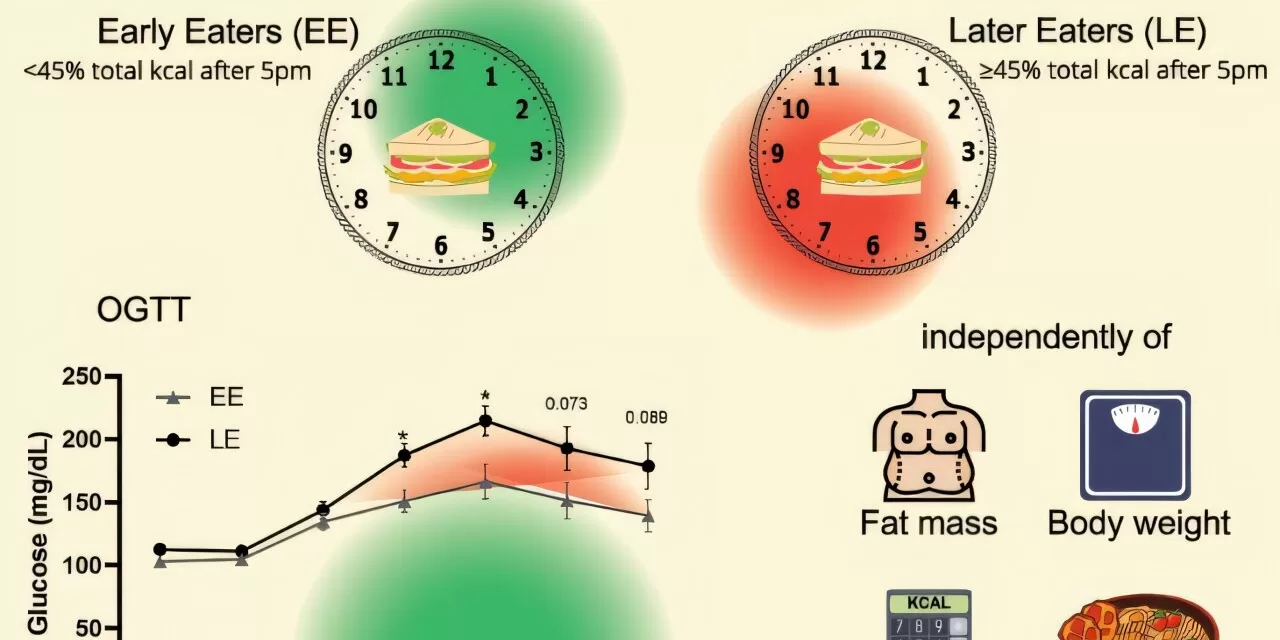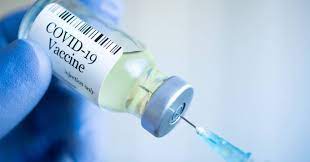A new study from the Universitat Oberta de Catalunya (UOC) and Columbia University provides scientific backing for a long-held health advice: eating late can disrupt glucose metabolism and pose significant risks to health. Published in Nutrition & Diabetes, the study found that consuming more than 45% of daily calorie intake after 5 p.m. can lead to increased glucose levels, a condition that could trigger serious health consequences, such as type 2 diabetes, cardiovascular diseases, and chronic inflammation.
The research was led by Dr. Diana Díaz Rizzolo, a postdoctoral researcher at UOC’s Faculty of Health Sciences. The study, conducted at Columbia University’s Irving Medical Center, challenges previous beliefs that late-night eating primarily results in weight gain. Instead, the study shows that the timing of meals plays a crucial role in how the body processes glucose, regardless of calorie intake, weight, or body fat.
“Maintaining high levels of glucose over extended periods can significantly increase the risk of developing type 2 diabetes, cardiovascular issues due to blood vessel damage, and heightened chronic inflammation, which worsens metabolic and cardiovascular health,” explained Dr. Díaz Rizzolo.
The study, which involved 26 overweight or obese participants aged 50 to 70 with prediabetes or early-stage type 2 diabetes, compared the glucose tolerance of two groups: one that ate most of their daily calories before the evening and another that consumed more than 45% of their calories after 5 p.m. Both groups ate the same foods and consumed the same total caloric intake, but the late eaters showed a significantly poorer glucose tolerance.
Late eaters, it turns out, had an increased intake of carbohydrates and fats in the evening. Dr. Díaz Rizzolo pointed out that the body’s ability to process glucose declines at night due to a natural decrease in insulin secretion and reduced cell sensitivity to insulin, a process controlled by the body’s circadian rhythm. This rhythm is synchronized with daylight hours and negatively impacts glucose metabolism in the evening.
The study’s findings underscore the importance of not only what and how much we eat but also when we eat. “Until now, most dietary advice has focused on the quantity and quality of food,” said Dr. Díaz Rizzolo. “This study highlights the critical role of meal timing in maintaining cardiometabolic health.”
While the study’s results are promising, Dr. Díaz Rizzolo recommends further research to fully understand the long-term effects of late eating. Meanwhile, she advises eating the bulk of calories earlier in the day, with breakfast and lunch being the key meals, and avoiding high-carb or ultra-processed foods at dinner.
This research paves the way for rethinking daily eating habits, emphasizing the importance of aligning meal times with our body’s natural rhythms to promote better health outcomes.










